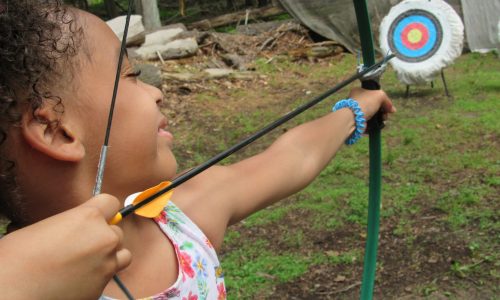Choosing a camp can be quite difficult. For the most part all camps promise the same thing, a fun summer. Camp Directors often talk about their programs being child centered or allowing campers to make fantastic memories. Parents need to decide what is most important to them. Location, friends, length of day, sessions offered or length of the camp season are often the determining factors. While in many cases it typically boils down to price, parents should focus on the other factors in order to make sure that the cost is worth it.
Parents that are shopping around for camps find indoor camps, town camps, sports camps, academic enrichment camps, traditional outdoor camps, day camps and sleep away camps. Pinning down just the right one can be difficult. Outdoor camps whether day or sleep-away are traditionally more expensive than the indoor or town camps. Within that grouping there are private and not for profit camps with tremendous differences in cost between them. Some camps offer out of camp trips, overnights and sleep away options. So, how do you know just what is the right camp for you.
After you have figured out just how much you want to spend for a camp, you next need to think about the program it offers. Do you want your child to learn to swim? Is sports important, or do you want your child to have a taste of many different kinds of activities? Are you interested in an urban setting or a rural setting? Where are the other local children going? Is that important to you or do you want you child to make new and different friends?
The perfect camp might offer an opportunity to try all kinds of new activities. It might be a place that is both affordable and has a strong program filled with trips, adventures, sports and arts. It should focus on staff relationships with children and group dynamics. It should be a place where the kids can swim and enjoy the beauty of the outdoors during the summer. After all, what is the summer with out enjoying the weather?
Many programs offer trial periods. Perhaps you can register for two weeks with the possibility of extending for a lower rate. This gives parents an opportunity to try. Keep in mind that a camper does not get everything out of an 8 week program in a two week trial, but if everything is going well and the child is having fun and making new friends then go ahead and extend.
When looking for a camp, ask the following questions? What is the camper to counselor ratio? Are you accredited? Who supervises the program? How often will parents have an opportunity to find out what is going on at camp? What happens if I have a complaint? Quality camps will have answers to each of these important questions and will make you feel at ease. They will tell you how far away the nearest adult is when your child is swimming. They will explain all about how a child is never alone in the bathroom with an adult. They will tell you about how the staff is hired and vetted to make sure they do not have a questionable past.
So what do I look for in a camp? First, I love the outdoors and new activities, so that is really important. I think transportation is extremely important as well. I look for free and convenient transportation and I don’t want to worry about lunch, since the summer is so busy, so I would be looking for a camp that includes free lunch. I want my children to swim and boat and enjoy traditional camp activities like archery and making S’mores. I want a camp to run for 8 full weeks, so often town camps and agency camps end in 5 or 6 weeks but the child-care is important for working families. I look for good communication between the camp and parent and most important, it has to be something that I can afford. As a camp director, I made sure that all of these thoughts are strongly considered in our camp design.
In the end, while choosing a camp is often a difficult chore, knowing what type of camp you are looking for and how much you intend to spend matters, but understanding the in’s and out’s of program concerns is key.
Mike Halpern is the Director of Youth Services at Mosholu Montefiore Community Center. He has been the Director at Mosholu Day Camp for the past 30 years. A retired NYC teacher, Mike is a life long camper, having spent each summer of his life either attending or working at a camp. He is a member of the New York State Camp Director’s Association and The American Camping Association.

